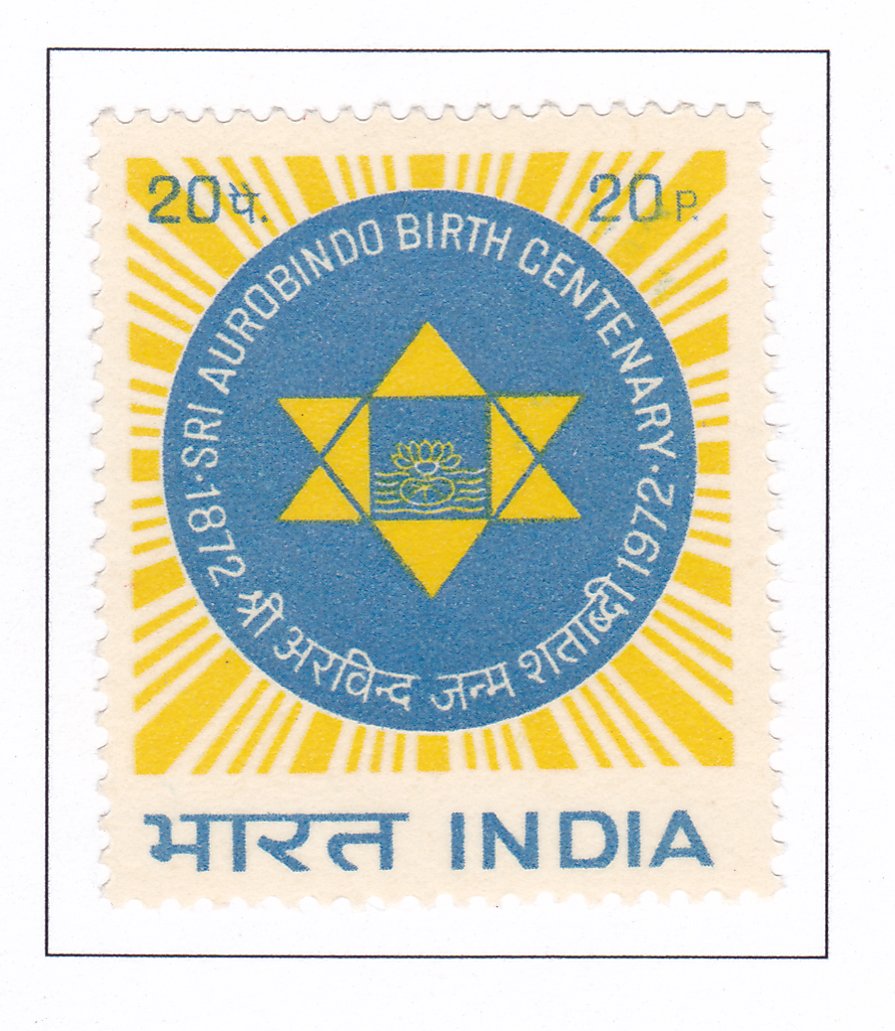Sri Aurobindo

Technical Data
| Stamp Set | Birth Centenary |
|---|---|
| Date of Issue | August 15, 1972 |
| Denomination | 20 nP |
| Quantity | 3,000,000 |
| Perforation | comb 14 |
| Printer | Security Printing Press, Nashik |
| Watermark | No Watermark |
| Colors | Blue | Yellow |
| Catalog Codes |
Michel IN 542 Stamp Number IN 558 Yvert et Tellier IN 343 Stanley Gibbons IN 660 |
| Themes | Anniversaries and Jubilees | Religion | Symbols |
The 15th of August, 1972, holds dual significance for India—it marks the Silver Jubilee of independence and the birth centenary of one of its distinguished sons, Sri Aurobindo. Sri Aurobindo’s life journey was multifaceted, starting from his involvement in India’s freedom struggle to his profound spiritual contributions.
Born in the latter half of the 19th century, Sri Aurobindo received his early education in India before pursuing further studies in England, where he excelled academically. His time in England was marked by success, including mastering several European languages and achieving First Class Honours in the classical Tripos from the University of Cambridge.
Upon returning to India in 1893, Sri Aurobindo embarked on a career in the State of Baroda, where he delved deep into Indian languages, literature, and culture. He also engaged in revolutionary writings, advocating for India’s independence through newspapers like ‘Yugantar’ and ‘Bande Mataram.’
Sri Aurobindo’s active involvement in politics intensified with the partition of Bengal in 1905, leading to his arrest in the Alipore Bomb Case in 1908. However, this period of imprisonment proved transformative, as Sri Aurobindo gradually shifted his focus from political activism to spiritual pursuits.
Retreating to Pondicherry in French India, Sri Aurobindo dedicated himself to spiritual work, believing it to be paramount for humanity. With the arrival of the ‘Mother’ in 1914, the Ashram at Pondicherry began to flourish, becoming an international center for spiritual seekers.
Sri Aurobindo’s prolific writings, including ‘The Life Divine,’ ‘The Synthesis of Yoga,’ and ‘Essays on the Gita,’ encapsulate his profound spiritual philosophy. His epic poem, ‘Savitri,’ is considered his magnum opus.
Even after his demise in 1950, Sri Aurobindo’s legacy lives on through institutions like the Sri Aurobindo Society, World Union, and Sri Aurobindo International Center of Education, which continue to propagate his teachings.
To honor Sri Aurobindo’s birth centenary, the Posts and Telegraphs Department issued a special stamp, designed by Shri Jayantilal Parekh of the Pondicherry Ashram, acknowledging his significant contributions to India and the world.
